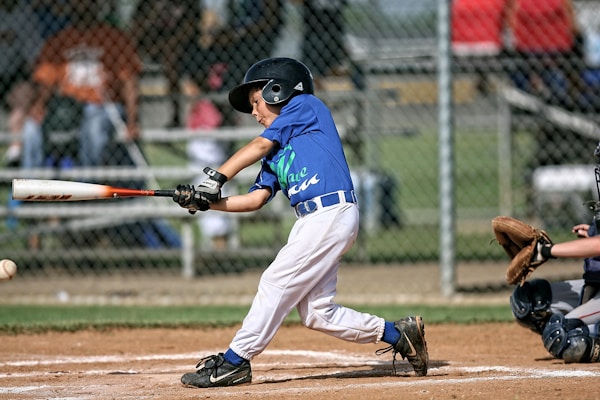In this article, we’ll discuss how you can help your kids optimize their time for school and sports performance. We’ll cover topics like goal setting, time management, and avoiding distractions. Keep reading to learn more!
Make a schedule.

Making a schedule for your kids will help them optimize their time for school and sports performance. Having a specific routine will allow them to know what is expected of them and when they need to complete tasks. When it comes to school, setting times for homework, studying, and breaks will help ensure that everything gets done without feeling overwhelmed. For sports, creating a practice schedule along with baseball training and game times will help them stay on track while also ensuring that they have time for all of their other activities. Having a set plan in place can be helpful for both parents and kids alike as everyone knows what is expected and there is less stress overall. At a glance, you can see how much time is spent at the training facility and how much time is spent studying. Teaching your child time management skills at a young age is a great way to prepare them for a balanced life in adulthood. With a schedule, they will have time to take their baseball skills to the next level and also complete their homework.
Set clear and realistic goals.
Parents want their children to succeed in school and sports, but often don’t know how to help them achieve this balance. One way to optimize your child’s time for success is to set goals. The best way to set goals is by using the SMART goal-setting technique: specific, measurable, achievable, relevant, and time-bound. Specific goals are ones that are clearly defined with a target date or deadline. For example, “I will get straight A’s in all my classes this semester” or “I will score over 20 points on my next basketball game” are specific goals. Measurable goals can be quantified so you can track your child’s progress. This might include things like, “I will read for 30 minutes every day this week.” Achievable goals should be challenging yet realistic; they should push your child to do their best without being impossible. Relevant goals are those that matter most to your child and fit into what they want to achieve in life; for example, “I want to improve my soccer skills so I can make the varsity team next year.” Finally, time-bound goals have an end date which creates a sense of urgency and helps keep your child focused on what they need to do to accomplish their goal.
Practice visualization exercises.

Visualization exercises can be a powerful tool to help improve confidence and performance in sports and academics. When done correctly, visualization can help athletes and students picture themselves succeeding in their sport or academics. This can boost confidence and help them perform at their best. Your child will need to learn how to visualize themselves succeeding. They can visualize themselves hitting the ball out of the park, getting that perfect score on a test, or nailing a play. Teach them not to focus on negative outcomes.
It’s important that you support your child in their chosen path and encourage them to persevere within areas that may need improvement. For example, if they’re having trouble with math, then you can find a math tutor to assist them when they’re not training. Just search for “math classes near me” on a search engine and you’ll have no problems finding a tutor that can help improve your child’s math skills.
Making sure your children have enough time for academics and sports can be difficult. But with the right tools and strategies, it can be done.









